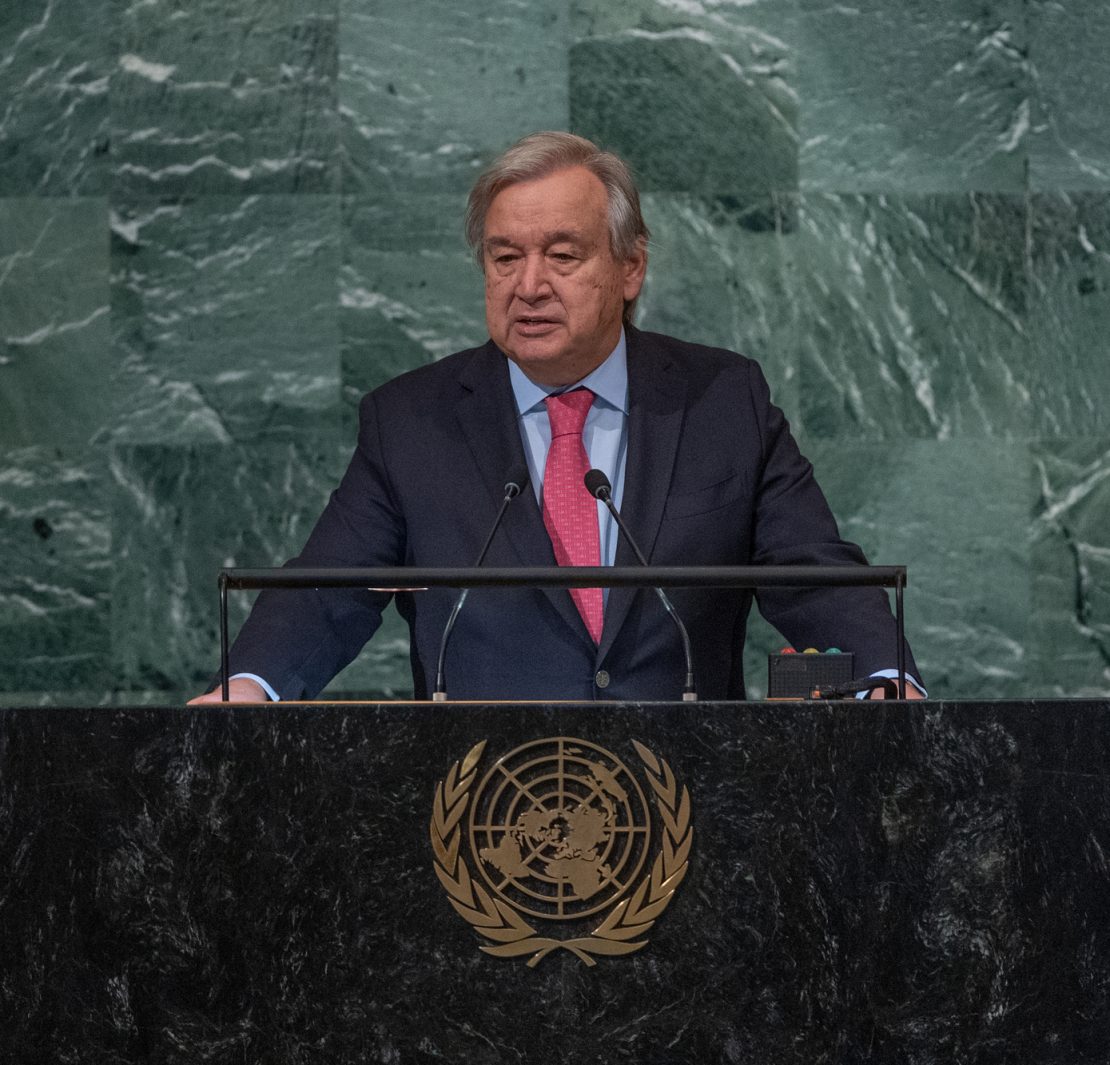The globe is in “a life-or-death struggle” for survival as “climate disaster gallops ahead,” United Nations Secretary-General Antonio Guterres warned on Monday. He made the statement in Kinshasa, Congo, where government representatives gathered for a meeting ahead of the COP27 climate conference to be held in Sharm el-Sheikh, Egypt, in November. Lately, devastating events around the globe and especially in South Asia sparked discussions over unprecedented changes in the climate and its lasting impacts. From floods that put one-third of Pakistan under water and Europe’s hottest summer in 500 years to hurricanes and typhoons that have hammered the Philippines, Cuba and the U.S. state of Florida, Guterres’ warning has now moved beyond the realm of a simple wake up call.
The richest countries in the world are directly blamed by Guterres for their inaction in the face of global warming. The UN chief said that greenhouse gas emissions are at an all-time high and continuing to rise, calling for “a quantum level compromise” between wealthy industrialized nations who produced the majority of the gasses and emerging economies that frequently experience their worst impacts.
According to statistics, wealthy nations—particularly the United States—have emitted far more than their fair share of the heat-trapping carbon dioxide produced by burning coal, oil and natural gas. More harm has been done than expected to developing countries like Pakistan and Cuba due to global carbon emissions.
In recent weeks, Guterres has stepped up his campaign for “loss and damage,” the climate movement’s term for forcing polluters to pay for their actions. He emphasized that people need to take immediate action. “Failure to act on loss and damage will lead to more loss of trust and more climate damage. This is a moral imperative that cannot be ignored.”
#COP27 must be the place for action on loss and damage.
This is the number one test of how seriously governments take the growing climate toll on the most vulnerable countries.
It is a moral imperative that cannot be ignored. pic.twitter.com/MlrNUc2neb
— António Guterres (@antonioguterres) October 3, 2022
In unusually critical language, Guterres also said that commitments made by the so-called G20 group of the world’s 20 leading economies “are coming far too little, and far too late.”
Guterres’ words also confirm what small islands and developing countries have been claiming for decades — that environmental destruction induced by the changing climate is indisputable and has already disproportionately harmed the most vulnerable countries. A critical statement from a diplomatic entity signals that we are at a tipping point where developed nations are now urged to step forward instead of putting off taking action.
I urge leaders at the highest level to take full part in #COP27 and tell the world what #ClimateAction they will take nationally & globally.
They can demonstrate through their presence and active participation that climate truly is the top global priority that it must be. pic.twitter.com/EvRof5iH8r
— António Guterres (@antonioguterres) October 4, 2022




